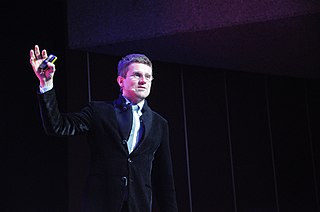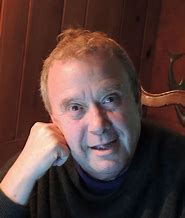A Quote by Paul Theroux
The United States is a world unto itself. We have mountains, we have deserts, we have a river that equals the Yangtze River, that equals the Nile. We have the greatest cities in the world - among the greatest cities in the world. We have a large population. We have challenges. We have an indigenous population.
Related Quotes
Fifty percent of the world's population lives in cities. In a couple of decades, 70 percent of the world's population will be living in cities. Cities are where the problem is. Cities are where the solution is, where creativity exists to address the challenges and where they have most impact. This is why, in 2005, the C40 was founded, an organization of cities that address climate change. It started with 18 cities; now it's 91. Cities simply are the key to saving the planet.
Were I to make the announcement and to run, the reasons I would run is because I have a great belief in this country [America]. ... There's more natural resources than any nation in the world; the greatest education population in the world; the greatest technology of any country in the world; the greatest capacity for innovation in the world; and the greatest political system in the world.
The main implication is a remapping of the world in line with American policy and American interests. Natural resources are limited, and the United States wants to make sure that its own population is kept supplied. The principle effect of this will be for the United States to control large parts of the oil which the world possesses.
The threat of mutually assured destruction worked for the United States during the Cold War because it had proved its willingness to drop nuclear bombs on enemy cities at the end of World War II. It might work less well for Israel, because the Israeli Air Force has never deliberately targeted a large civilian population center, and its leaders have said its morality would not permit it do so.
The money economy thus leaves a large ecological footprint, defined as the amount of land and resources required to meet a typical consumer's needs. For example, with only about 4% of the world's population, the United States, the largest money economy, consumes in excess of one-quarter of the world's energy and materials and generates in excess of 25 percent of the world's greenhouse gas emissions.
The United States is the greatest threat to world peace, and has been for a long time, and not merely because it is the world's only superpower. Equally important, the United States is also far more disposed to use its power than any other powerful nation currently is. Though Americans are culturally and emotionally blind to the fact, the mere intrusion of US power is, in and of itself, destabilizing.
The very greatest genius, after all, is not the greatest thing in the world, any more than the greatest city in the world is the country or the sky. It is the concentration of some of its greatest powers, but it is not the greatest diffusion of its might. It is not the habit of its success, the stability of its sereneness.






































